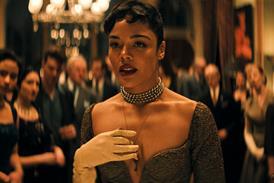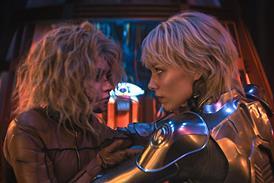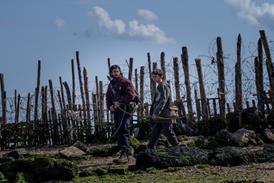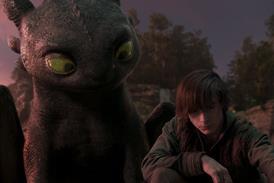’March Of The Penguins’ director Luc Jaquet returns to observe the wildlife of Antarctica
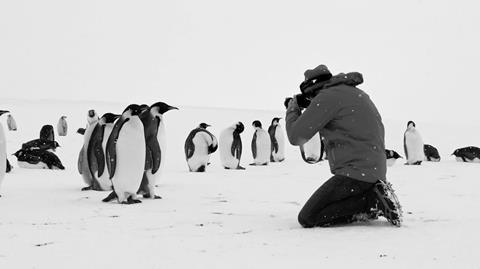
Dir: Luc Jacquet. France. 2023. 82mins
March of the Penguins director Luc Jacquet’s latest frosty documentary Antarctica Calling sees him make the labour-intensive ice-breaker journey to the South Pole (via Patagonia and Cape Horn) to feed what he calls his addiction to gazing upon the pristine vistas and valiant marine mammals who have evolved to live there.
The splendidly evocative black and white photography is the main attraction here
The visit takes place exactly 30 years after the then-23-year-old Jacquet first fell for observing three kinds of penguins, their neighbors and predators.The splendidly evocative black and white photography is the main attraction here, and the transporting imagery will be enough for many viewers. But Jacquet makes the fundamental miscalculation — at least for non-French audiences — of assuming that his endless musings about why he is drawn to this part of the world, delivered at length in his own voice, are, well, sufficiently interesting.
March of the Penguins, which won the best feature documentary Oscar in 2006 and pulled in almost $130 million worldwide on an investment of about $8 million, is one of those rare instances where third party involvment really did make it a noticeably better and more commercial prospect. The version released in French (and dubbed in several other territories) featured three well-known French actors reciting the inner monologues of the penguin family the film follows. The earnest result was ripe for parody but the images, captured with considerable dedication, patience and hardship, were captivating. The foreign rights holders nixed the original French score (which won the French equivalent of a Grammy), excised the plaintive anthropomorphic voiceover and replaced it with sonorous and expressive Morgan Freeman as lone narrator. A winning move.
Yet here there is nothing BUT voice-over spoken with a mostly bland if heartfelt delivery by Jacquet. While Werner Herzog can pull off this sort of thing, Jacquet simply isn’t that compelling. But, thank goodness, his images are.
Jacquet tells us that there are four routes to the South Pole but he prefers going via South America. In one stop along the way — Torres del Paine in Patagonia — there are only burnt husks of trees where there was a forest. “What spaces does society leave for dreamers?,” he ponders. ”For those who aspire to wide open spaces? At my age you begin to ask how many trips you have left.”
After half an hour of such musings, one longs for him to get to the penguins. Rewardingly, over a million live on the archipelago and, as framed here, they look as if they have modeled their gatherings on aerial photos of the Woodstock music festival. And with the onset of mating season and its seemingly irrational evolutionary drive to return to this spot, what had been silence will now host four months of squawking.
Wandering up to a penguin colony, Jacquet makes the lucid observation that “I’m probably the strangest thing you guys have ever seen” and thanks them for having the elegance to not make him feel unwelcome. He also captures ravishing footage of blue whales, albatros, majestic condors in flight, sea lions and a sea leopard, which likes to eat penguins.
Another challenge for the emperor penguins is that they like solid ice, which is getting scarcer. Making clear, although never stridently, that man-made climate change has bad consequences, Jacquet conveys the idea that he is just a privileged visitor but these valiant creatures have to live here – and presumably wish to continue doing so. In a meditative-if-obvious conclusion, Jacquet hopes our children and grandchildren will still have the option of seeing what he has seen and feels compelled to return to again and again: the wondrousness of nature.
Production company: Paprika Films
International sales: Playtime info@playtime.group
Producers: Laurent Baujard, Pierre-Emmanuel Fleurantin , Patrick Faivre
Screenplay: Luc Jacquet
Cinematography: Christophe Graillot, Jérôme Bouvier, Sarah Del Ben
Editing: Stéphane Mazalaigue
Music: Cyrille Aufort




